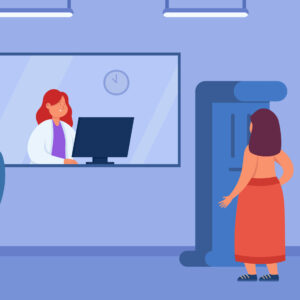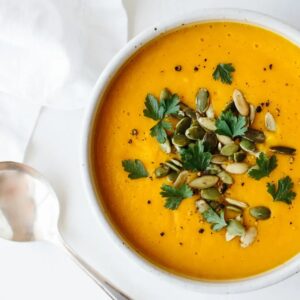The Importance of Yearly Mammograms


A mammogram is a tool that doctors use to determine if you have breast cancer, or to take a closer look at someone who has had breast cancer. Mammograms use X-ray photography to take images of the breast, and this type of imaging has been used for more than 50 years.
Regular screening mammograms are recommended for women of average risk of breast cancer once a year after they turn 40, but if you have more risk factors, your doctor may recommend that you start having them earlier. Diagnostic mammograms are a different kind of mammogram than regular screening mammograms, and they are used as a way to focus on specific areas. This could be because of a lump or an area that looked concerning on a regular mammogram, and a diagnostic mammogram will take more images than a regular mammogram.
While mammograms themselves don’t prevent breast cancer, they can help doctors to find breast cancer sooner, which allows patients with cancer to start treatment as soon as possible. Because breast cancer can be found so much sooner now, this also means that mastectomy (or removing the breast) is not always necessary.
While mammograms do involve some radiation exposure, it is such a tiny amount of radiation that it’s nothing to be concerned about. A mammogram uses even less radiation than a chest X-ray. Mammograms aren’t perfect and can produce both false negative results, where normal breast tissue covers up cancer tissue, or false positive results, where an area looks like cancer but turns out to be normal. However, mammograms remain the most important tool we have to screen for breast cancer. When done in combination with regular breast self-exams, regular breast exams by medical professionals, and a breast MRI or ultrasound if needed, mammograms are a useful technology that can save lives.
https://www.breastcancer.org/screening-testing/mammograms
Cancer and Your Diet


Foods that can increase your risk:
- Sugar and refined carbs can cause your blood glucose levels to spike, and this can increase the risk of cancer like stomach, breast, and colorectal.
- Processed meat like hot dogs, ham, bacon, salami, and other deli meats are linked to a higher risk of cancer, particularly colorectal cancer. Some studies have also linked red meat (steak, hamburger, etc.) to an increased risk of cancer as well.
- Overcooked food can make certain compounds that when built up, can contribute to inflammation and may increase the risk of cancer and other diseases. To combat this, avoid burning food and use gentle cooking methods, especially with meat, like steaming, stewing, or boiling.
- Dairy has been linked to higher rates of prostate cancer in men, but more research is needed to determine the exact reason for this.
Foods that may be linked to cancer prevention:
- Vegetables
- Fruit
- Flaxseeds
- Spices like cinnamon and tumeric
- Beans and legumes
- Nuts
- Olive oil
- Garlic
- Fish
While eating one specific food isn’t going to guarantee whether you have cancer or not, your overall diet can truly have an impact. Incorporating some of the foods listed above that may be linked to cancer prevention while limiting things like refined carbs, food high in sugar, processed meats, and other things could be a good idea. Eating a more plant based diet (vegan or vegetarian) has also been linked to lower rates of cancer. No matter what you do, just the act of thinking carefully about what you put in your body can make an impact. Additionally, watching what you eat may help you to lose weight, which will also decrease your cancer risk if you are overweight or obese.
https://www.healthline.com/nutrition/cancer-and-diet#anti-cancer-foods
Butternut Squash Soup


- 2 tablespoons extra-virgin olive oil
- 1 large yellow onion, chopped
- ½ teaspoon sea salt
- 1 (3-pound) butternut squash, peeled, seeded, and cubed
- 3 garlic cloves, chopped
- 1 tablespoon chopped fresh sage
- ½ tablespoon minced fresh rosemary
- 1 teaspoon grated fresh ginger
- 3 to 4 cups vegetable broth
- Freshly ground black pepper
- Optional:
- Chopped parsley
- Toasted pepitas
- Crusty bread
Instructions:
- Heat the oil in a large pot over medium heat. Add the onion, salt, and several grinds of fresh pepper and sauté until soft, 5 to 8 minutes. Add the squash and cook until it begins to soften, stirring occasionally, for 8 to 10 minutes.
- Add the garlic, sage, rosemary, and ginger. Stir and cook 30 seconds to 1 minute, until fragrant, then add 3 cups of the broth. Bring to a boil, cover, and reduce heat to a simmer. Cook until the squash is tender, 20 to 30 minutes.
- Let cool slightly and pour the soup into a blender, working in batches if necessary, and blend until smooth. If your soup is too thick, add up to 1 cup more broth and blend. Season to taste and serve with parsley, pepitas, and crusty bread.
https://www.loveandlemons.com/butternut-squash-soup/






